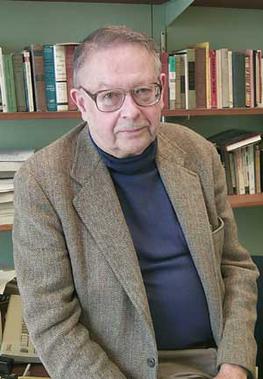Man, the State and War Summary
4 min read ⌚
 A Theoretical Analysis
A Theoretical Analysis
Why do wars happen?
In the following text, we summarize Kenneth Waltz’s study on the causes of war, from an anthropological, psychological and political perspective.
Who Should Read “Man, the State, and War”? and, Why?
We have not seen a world war for a long time. However, all over the world, many countries are at war.
So, the questions on the nature of war and the search for prevention measures are still relevant.
In “Man, the State and War” the author tackles these questions by exploring different ideas and theories of prominent thinkers and philosophers throughout history.
We recommend this book to readers interested in politics and international relations.
About Kenneth N. Waltz
 Kenneth N. Waltz was an author and political scientist.
Kenneth N. Waltz was an author and political scientist.
He taught at the Arnold A. Saltzman Institute of War and Peace Studies at Columbia, as well as at Harvard and Peking University.
“Man the State and War Summary”
Everyone has their own opinion about anything and everything. The same stands true for the topic of war.
The reasons in people’s minds vary from economic crises to power-hungry leaders to authoritarian regimes.
In the following text, we will present to you the three main ideas regarding the causes of war that were present throughout history. These ideas are referred to as images.
The first-image thinkers link the reasons for war directly to human nature.
Although all of the representatives of this group agree that the reason for war is human nature, the disagreements happen when it comes to defining human nature, and hence the cure. According to their views on the cure, first-image thinkers can be optimists or pessimists.
The optimists argue that human nature is improbable, and so, according to them, education is the cure for war.
The pessimists, on the other hand, believe that human nature is not only unchangeable but also evil at its core. So, the only possible cure for war is external control.
You have to give it to them, at first glance it seems that first-image thinkers are right, since you could not find another explanation for starting conflict except the corrupted and egoistic human nature.
However, you have to bear in mind that on the opposite side of war, there is peace, in many countries in the world. So, there must be something good in human nature as well.
Second-image thinkers disagree with everything we just said. Instead, they believe that the cause of war lies in the internal structure of the country.
In other words, if only the right structure would be adopted globally, the world would be at peace.
Of course, not all of them agree on all points of the theory. So, they divide themselves into a liberal and socialist group of second-image thinkers.
Liberals believe that decentralization, free-trade and freedom from governmental regulation discourages war and prevents conflict.
Why?
Because according to them the interests of people become interconnected through trade agreements, and thus wars would benefit them less than peace.
Socialists do not agree. They believe that free trade is the actual reason that would lead to internal and external conflicts. According to them, the class struggle manifests in war.
The conclusion?
The abolishment of capitalism and the triumph of socialism will cure all reasons for war.
Lastly, the third-image thinkers see the international scene as lawless anarchy, which is the reason for conflict.
In other words, they argue that the only way to avoid violence and conflict is introducing a universal superior or higher institution of power.
Now that we looked at the three different understandings on what fuels war, we will continue to the key lessons, where we will present the main problems with each of these views.
Key Lessons from “Man, the State and War”
1. Problems With The First-Image Thinkers’ Theory
2. Problems With The Second-Image Thinkers’ Theory
3. Problems With The Third-Image Thinkers’ Theory
Problems With The First-Image Thinkers’ Theory
There are several problems with the optimists’ understanding of human nature. First, even if it is possible to change many people, there would still exist many more people to change.
Second, all of the ways to create world order they propose state just one philosophy that can cure war. However, it is impossible to find a universal cure, since all people imagine the ideal world differently.
Finally, they only see the problem in human nature, which is a limitation.
Problems With The Second-Image Thinkers’ Theory
The problem with the liberal assumption that it is in every individual’s interest not to go to war is that not always are the individuals’ interests represented in the government.
The socialists’ theory has a similar shortcoming. Namely, they believe that each party’s rationality would help them overcome their conflicting viewpoints and find the best possible outcome.
Indeed, we could not rule against the notion that if international socialism existed, it could cure war since it was never established. However, if we look at past experiences, we can easily conclude that its success is quite unlikely.
Problems With The Third-Image Thinkers’ Theory
Third-image thinkers believe that a world government would prevent war.
However, even if such a government existed, there can be no guarantee that the leaders of it would act in the best interest of its member states, instead of in self-interest.
The chances of corruption in such a government cannot be ignored. So, it is highly unlikely that such a government would come into existence and be effective.
Like this summary? We’d Like to invite you to download our free 12 min app, for more amazing summaries and audiobooks.
“Man, the State and War” Quotes
War and the threat of war stimulate speculation upon the conditions of peace. Share on X In wars, there is no victory, but only varying degrees of defeat. Share on X Attempts to eliminate war, however nobly inspired and assiduously pursued, have brought little more than fleeting moments of peace among states. Share on X If one asks whether we can now have peace where in the past there has been war, the answers are most often pessimistic. Perhaps this is the wrong question. Share on X When Ranke argued that the external relations, as states, determine their internal conditions, his argument had considerable cogency. Share on XOur Critical Review
“Man, the State and War” is a classic. The author backs his theory by referring to historical, political and social examples. The book is full of valuable insight and approaches the analysis of the reasons for war in a clear and concise manner.
Emir is the Head of Marketing at 12min. In his spare time, he loves to meditate and play soccer.


 A Theoretical Analysis
A Theoretical Analysis




